Bed bugs belong to those parasites that are quite easy to welcome to your home, however, you will surely face lots of difficulties if you make an attempt to get rid of them! And since these tiny beasts are bloodsuckers, their presence in your home is more than unwelcome.
However, if you discover the traces of their presence in your house or apartment, and you begin to prepare for the “bug exorcism” challenge, you will sooner or later stumble upon quite a common and important question.
How long can these pests survive without any food at all? Next come a few more related questions, such as: will starvation kill them?
If you make bed bugs that dwelled in your home starve, will that be enough for getting rid of them?
Well, sounds like too many things to figure out, so today we will try to provide you with the guide on these pests as detailed as possible.
You will learn what the life and feeding cycle of bed bugs is, what they actually feed on, how often they need to get food to keep on living, and what actions you can take to effectively cast them away.
Stay with us, it’s going to be very interesting today!
How Long Can Bed Bugs Live Without a Food Source?
It may seem to most of you that, if you leave pests with no food at all, they will eventually simply die out sooner or later. Like this, you will not have to bother about getting rid of them at all.
We wish we could say it is so when it comes to dealing with bed bugs, but unfortunately, these tiny creatures appear to be a hard nut to crack if you decide to kiss them goodbye!
To have it short, when it comes to functioning without food supplies, full-grown bed bugs can survive without eating for up to a year!
To be more precise, this period may vary from twenty to four hundred days.
Usually, the durability of their non-eating period hangs upon the surrounding conditions, the temperature, and humidity as well.
Of course, it makes them a very difficult enemy and even harder to cast away. In general, these pests are extremely resilient!
Despite their tiny size, bed bugs are able to successfully live in a varied range of temperatures from the very cold to the very hot ones. In addition, they are very small and have a flattened shape of their bodies which allows them to hide anywhere by squeezing themselves into the tiniest crevices.
What Bed Bugs Usually Feed On
Well, since they belong to bloodsuckers, they naturally feed on blood. May not be the best diet in our opinion, but for these pests, human blood is the most delicious yummy!
In general, these pests feed on animals, however, the common bed bug prefers feeding on humans. But still, when it has no access to human blood, it will also feed on the blood of any other warm-blooded creature, such as mammals, rodents, and even birds!
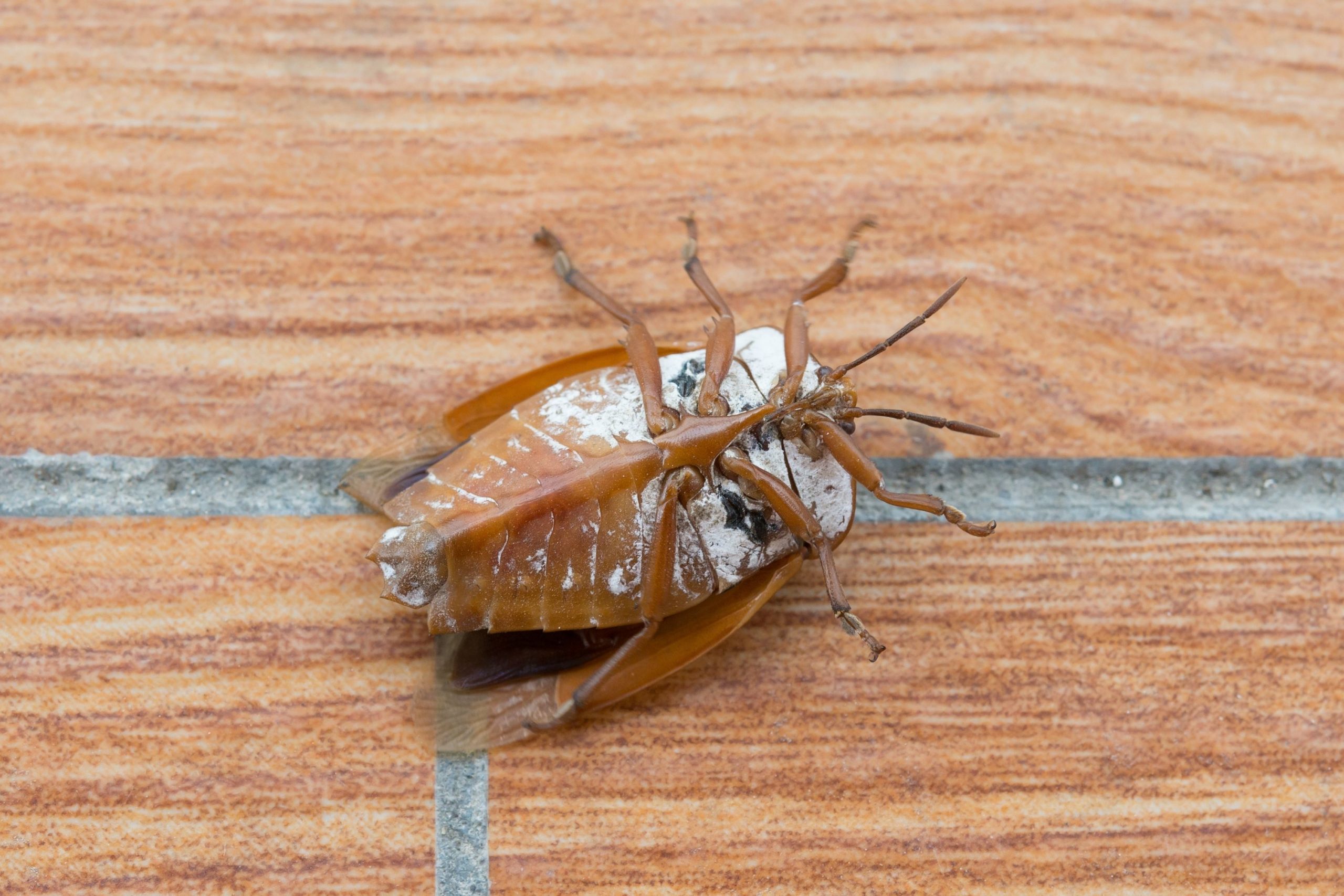
What Is The Frequency Of Bed Bugs Feeding?
Well, these tiny pests tend to have quite an unpredictable feeding schedule! We mean that there is no strict frequency that they tend to follow.
However, in general, mature bed bugs will have to feed every five to ten or twelve days or once a week when they have enough food and it is always available.
As for the bed bug nymphs, they need food once every week so that they can molt and grow to the next stage. Growing bed bug nymph generally takes 2-5 minutes to feed. Larger bugs may need up to ten minutes.
Also, though it is quite common that these parasites feed at night, the frequency of their feeding may vary depending on the following factors:
- the size of bed bugs population
- the availability of food
- conditions of their occupied structure
After each feeding, they will return to their hiding spot until the next blood meal.
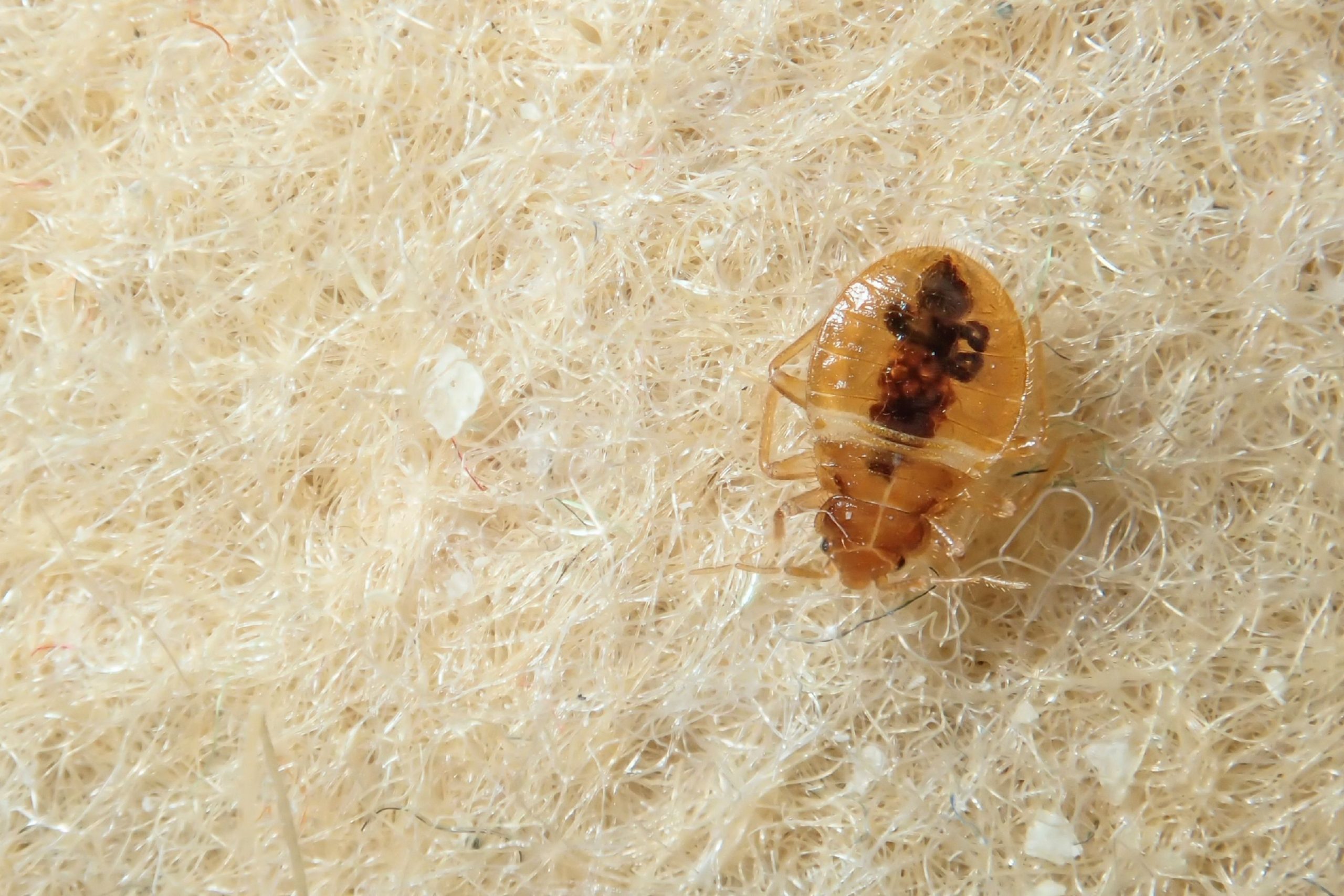
Bed Bugs Feeding Cycle
Bed bugs are not like most of the home pests. They do not feed on crumbs or food waste. Instead, their tiny mouths are shaped for feeding on blood only. And even though mature bed bugs are able to bite animals and even birds to feed, their major source of food is human.
However, when it comes to their feeding cycle, people tend to misunderstand it quite a lot. Most of us still believe that bed bugs come out of their hiding places for feeding only at night. Nevertheless, this is not quite true. These pests can easily feed during the day, they just need to be hungry enough for that!
Also, people tend to believe that they can make bed bugs disappear by simply leaving them with no food. But even if you leave your home for a couple of weeks, it will not help. Bed bugs don’t just leave like this! Since they are able to live with no food sources for months, they will be patiently waiting for you to come back.
Factors That Influence Bed Bugs Survival Without Food
But why are they so durable? And what makes these tiny insects remain alive for such a long period of time when they have no food? Let’s try to answer these questions by reviewing a bed bug’s survival mechanisms.
There are several factors that determine how long bed bugs can survive with no food at all.
- the age of the bug
- its habitat and activity level
- temperature
As for the age, a bed bug life cycle consists of five stages from hatching to a full-grown insect. A bug must feed at least once during each of these stages before it can molt and grow to the next stage of life. In case a bed bug does not receive enough feeding or it does not receive it at all for a couple of weeks during each stage of growth, it can die!
In addition, the more mature the bug is, the longer it can survive without food. Once adults, bed bugs can easily live starving for up to twelve months!
Habitat and activity levels also matter. See, if a colony of bed bugs dwells close to your bed or other piece of furniture, it will have to spend less time and effort to get to the food source. So obviously, if they don’t have to travel too far searching for food, and food is always close by, they can live longer.
Temperature is another vital factor that plays an important role regarding this question. When living in a cold area, bed bugs use less energy thus remaining dormant. On the contrary, when the temperature is high, their tiny bodies begin to consume way more energy making the pests feed more often in order to stay alive and reproduce.
There was research that showed bed bugs in their first instar-nymph stage stayed alive for twenty eight days at the temperature of 80 degrees Fahrenheit. But when the temperature reached the level of 98.6 degrees, they only lasted for seventeen days.
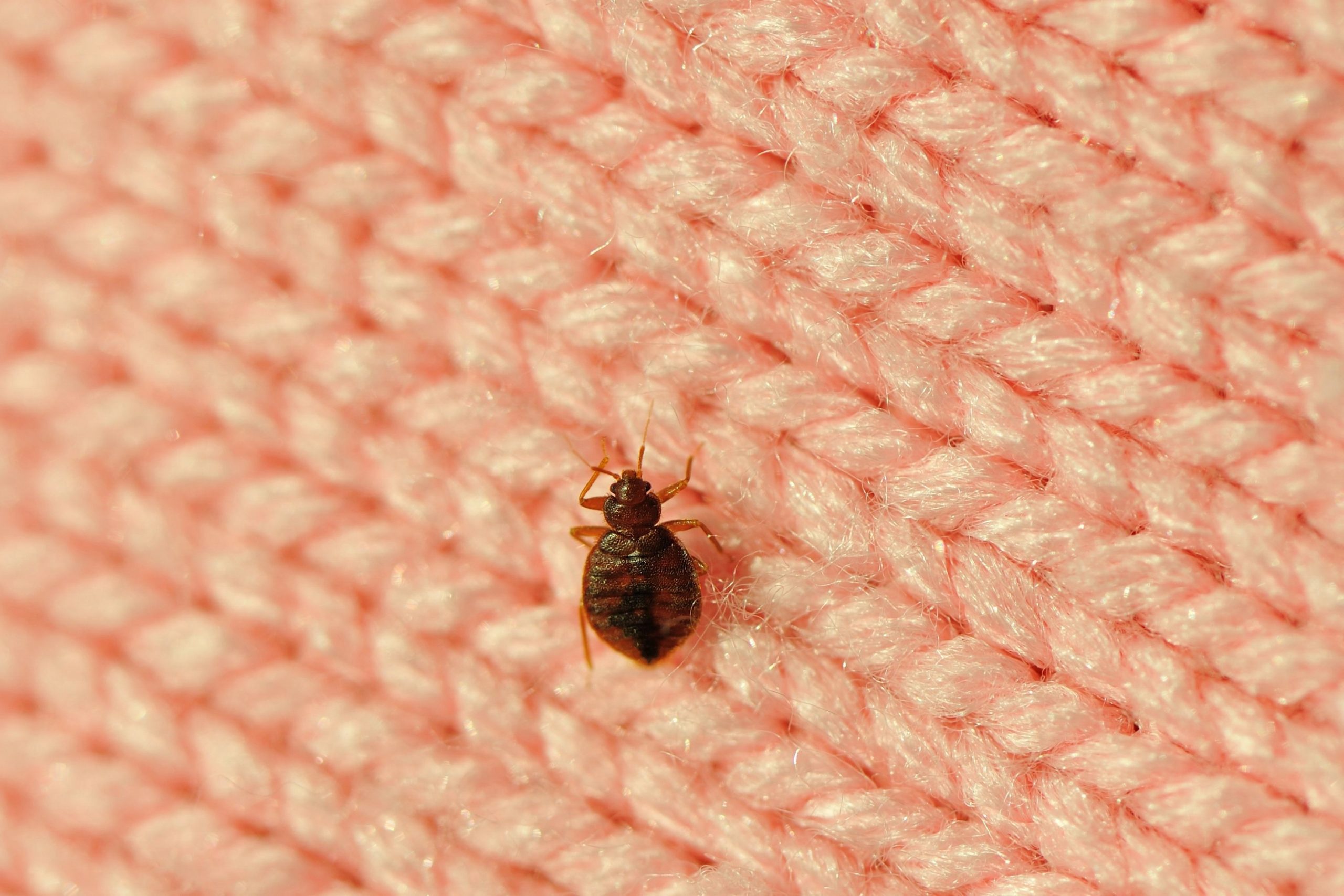
Where Do Bed Bugs Live?
Judging from their name, you may think that these pests live in our beds. However, this is not quite true. They really live close to human homes, but at the same time, bed bugs can successfully dwell almost anywhere: inside of your luggage, bags, suitcases, backpacks, and even clothing! Like this, they make their way from one place to another distributing themselves all around.
In the majority of cases, these parasites tend to infest carpets and furniture. And since they always live in colonies, once you spot one bug, be sure that there is a whole army somewhere nearby.
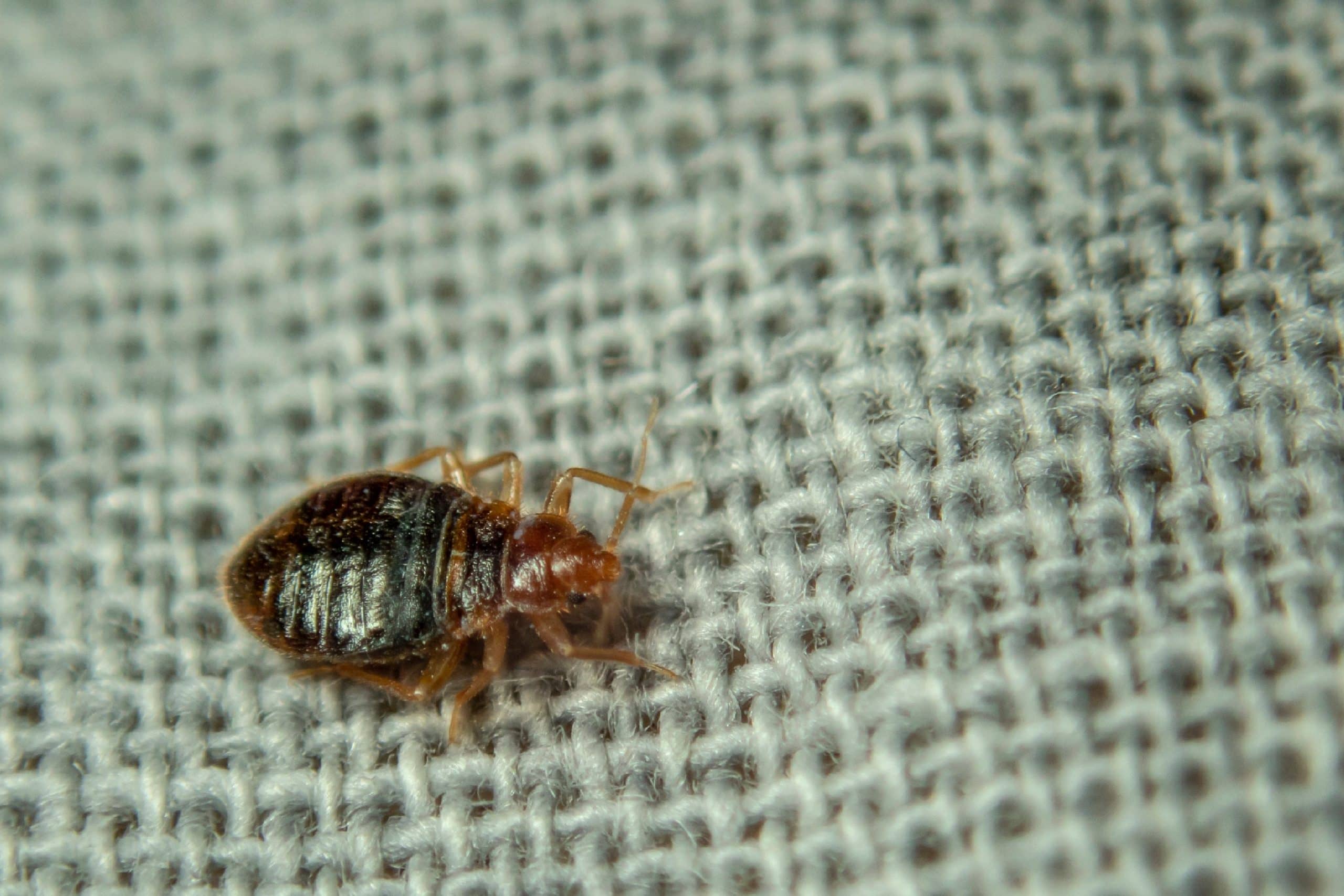
How Does Bed Bugs Population Grow?
Bed bugs can hardly be called the pests that reproduce or grow quickly, but they have another dangerous feature that makes them so hazardous for your home. They build their colonies very quietly.
See, an adult female bed bug lays only one egg each day. This egg will need ten days to hatch, and another five days to six weeks for the bug to grow into full adult. However, even though they grow slow, they do it unnoticed. So you might not even be aware of the problem until you see the colony one day, but it will be too late already.
Unfortunately, it is impossible to get rid of them by simply preventing them from feeding. Nevertheless, you still have chances for reducing the spread of infestation if you manage to limit their access to blood somehow.
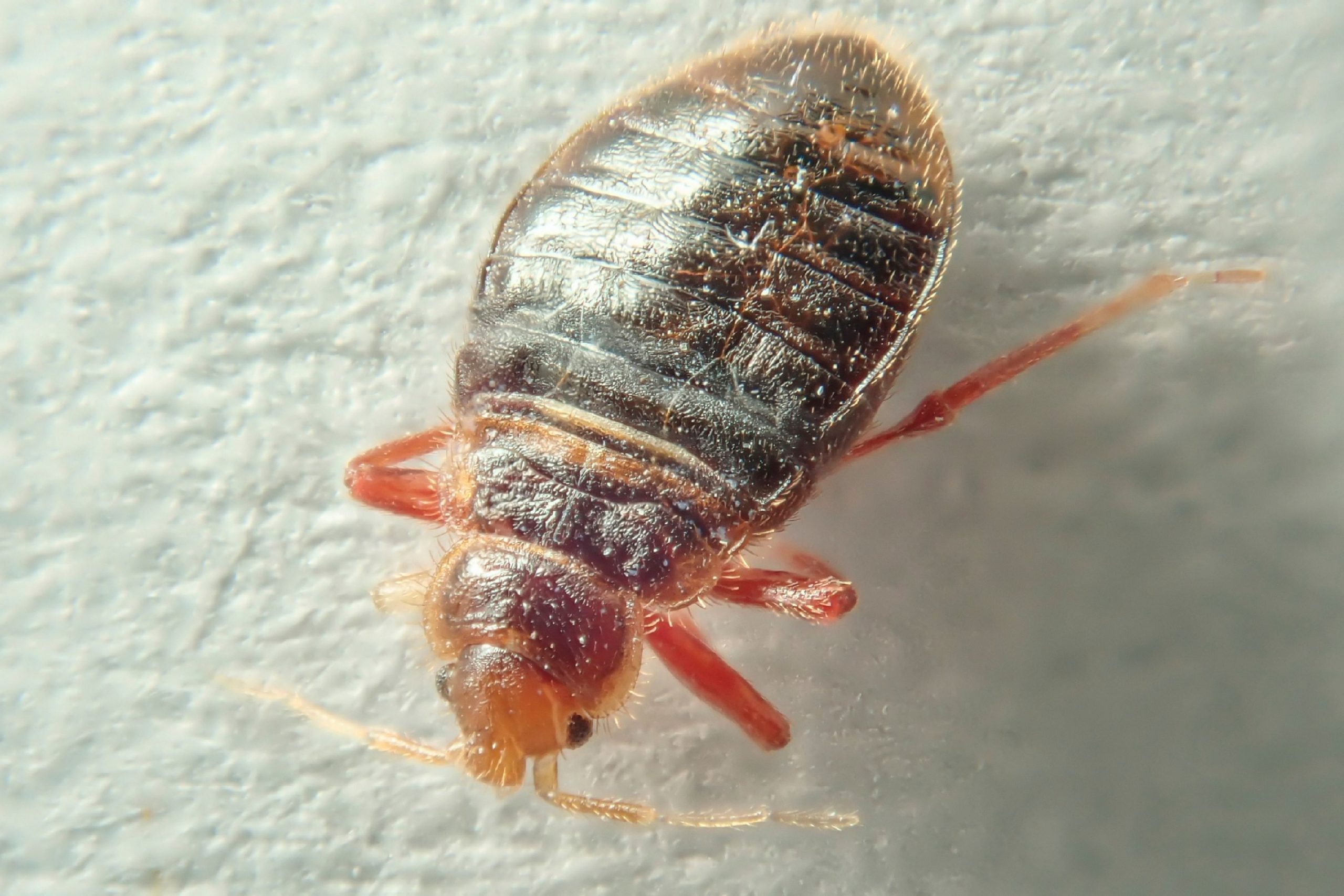
What to Do to Prevent Bed Bug Infestation Of Your Home
Since we have already figured out that casting these pests away is not a simple task that can be done in a blink of an eye, you may have quite a reasonable question. If we can’t make them disappear just like that, perhaps, there is a chance to prevent their appearance?
Indeed, this can work since, if you do your best and take preventive measures, the chances are pretty high that you will skip the infestation. So to make sure that these tiny blood sucking parasites pass your home by, we recommend you follow a few simple yet very effective rules and recommendations.
- Reduce the number of places where these critters can hide. That means cracks and crevices, clutter, peeling wallpapers, loose electrical faceplates, etc. Vacuum often, including under and behind the beds. Seal all the cracks in the walls, bed frames, deilings, windows, etc.
- Check all the possible entry points on walls that you share with neighbors, as well as openings that allow direct access to the inside of the wall. Those can be openings where pipes, wires, and other utility services enter.
- Be careful about what you bring into your home! Used books, new furniture, antique store items – everything must be checked before it ends up in your house or apartment.
- Be extremely careful with second-hand or refurbished items!
- Always check your new mattresses before they enter your house since they are often delivered in the same truck where old ones used to be.
- Never take mattresses or sofas from a curb.
- Always check items before putting them into your car and check the car after helping someone to move.
When being cautious, you will significantly reduce the chances for these blood sucking pests to invade your home.
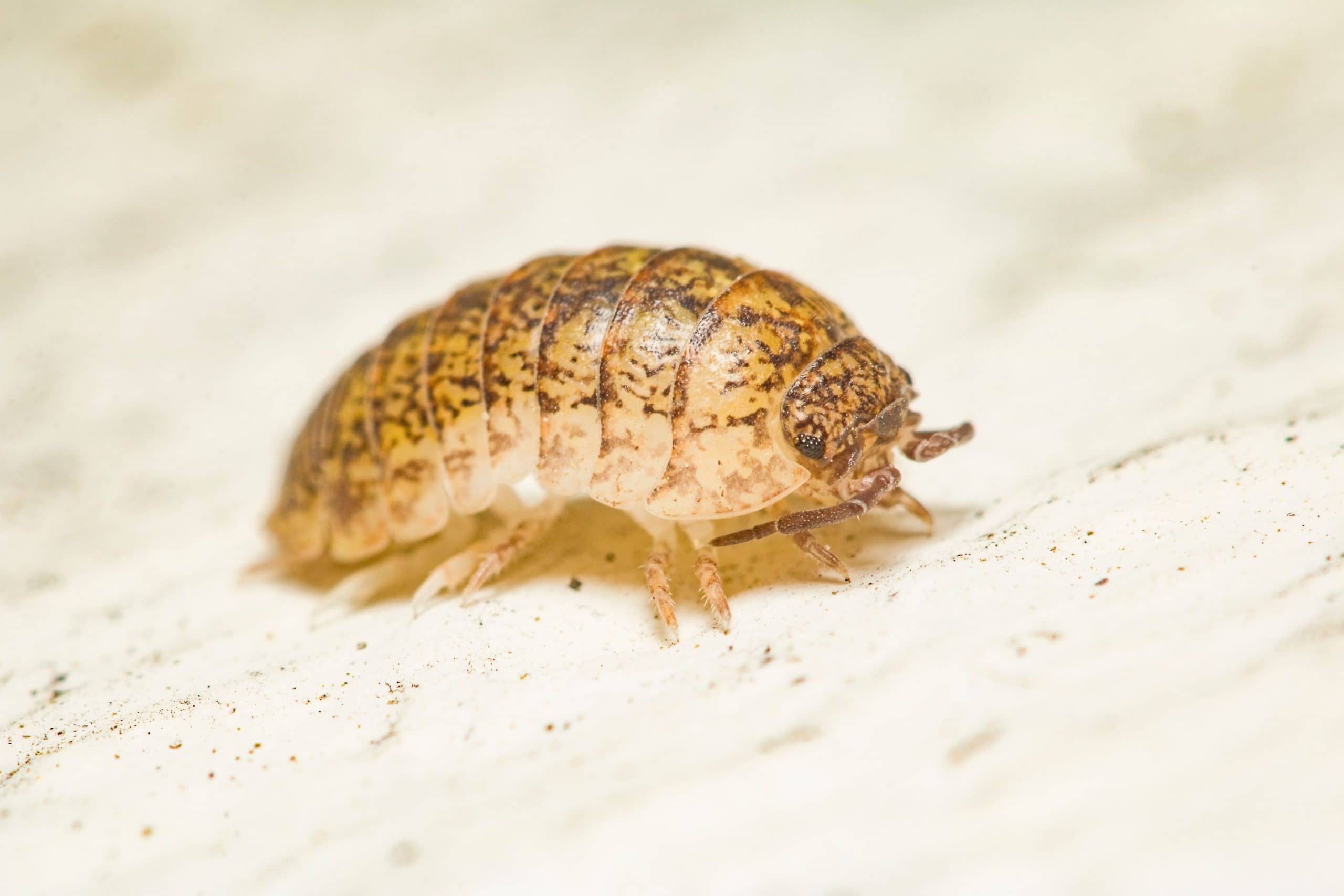
How to Check Your Home And Bed For Bed Bugs
To be sure that you didn’t miss anything and you don’t have a flourishing bed bug colony in your home, be sure you check your living space, as well as your beds, correctly.
- To check your home, check on, under, and beside beds, couches, and upholstered furniture. Look for black or brown spots that are dried blood or feces, as well as white spots (eggs – very hard to see), and live or dead bed bugs.
- For inspection, use something to scrape along mattress seams and other crevices (e.g. an old credit card will do).
- Use a screwdriver to remove the electrical faceplates and take your furniture apart if needed for deeper examination.
In case you are going to check your beds, which must be done anyway, do the following:
- Remove and inspect all the bed linens. If any traces of bugs are found, launder the linen using a hot water cycle.
- Examine your bed under the mattress.
- Check all the surfaces, crevices, staples, tacks, and under the wooden plugs that cover screw or nail holes on the bed legs, frame, and headboard.
- Finally, go over the wall behind the bed removing the electrical and phone faceplates for deeper examination.
Like this, you will be able to spot the very first signs of emerging bed bug infestations if there is any at all. And surely you will be able to react quickly and take proper actions to cast those pests away from your home!
[wp-faq-schema title=”Frequently Asked Questions”]
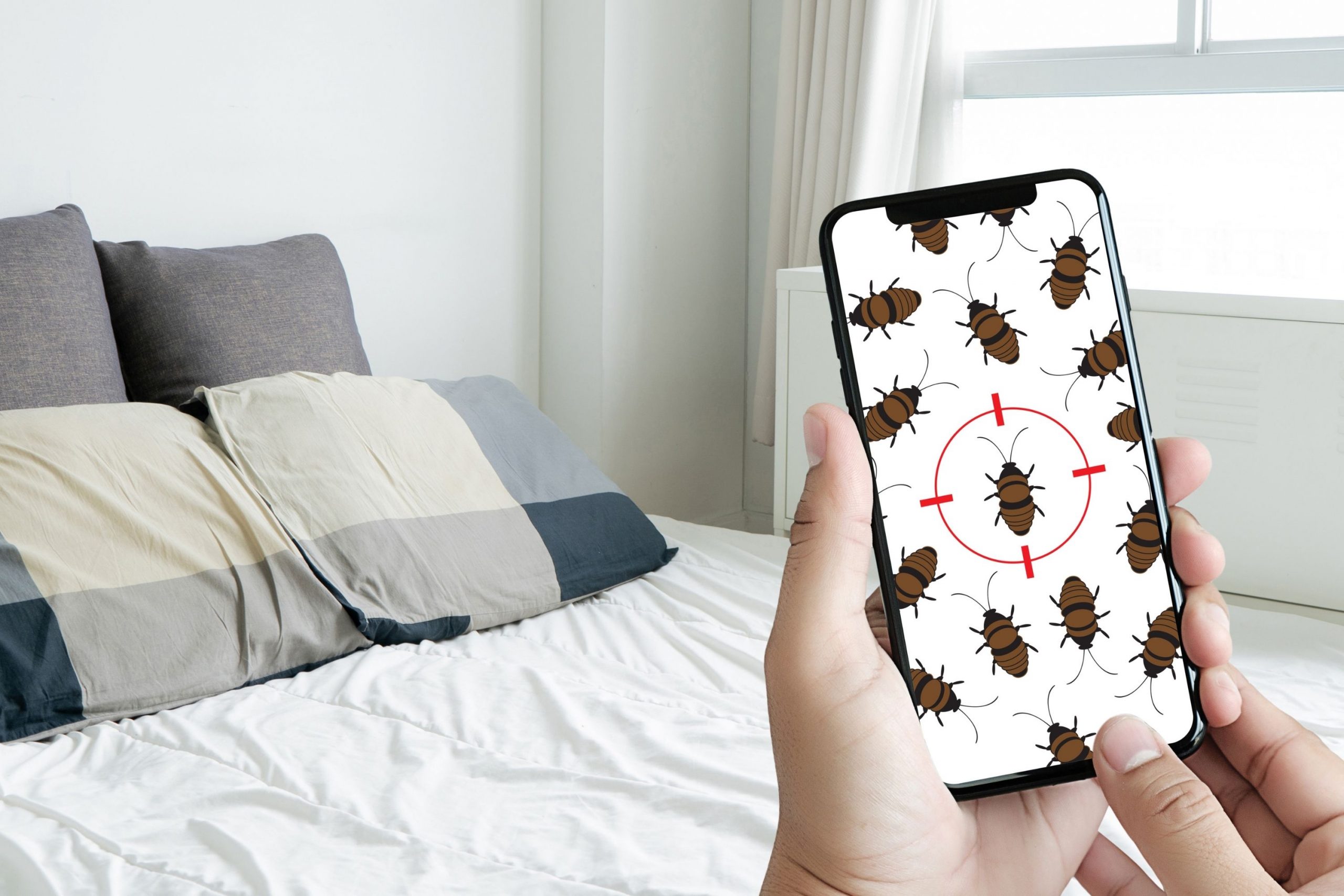
How long can newly hatched bed bugs live without food? I suspect we have them in our house but I have only seen babies mostly. Of course, adults are also somewhere out there, but still. What if we first try to get rid of the nymphs and baby bugs?
Well, I don’t think it will help since you need to destroy them all at once. But answering your question, a freshly hatched bed bug can live with no food for nearly several weeks.
I heard bed bugs can survive without food for months. Does anyone know how long bed bugs can live without food or water?
As for the food, they can really stay alive for up to a year if that is the mature bug. younger bugs will last for a few weeks I guess. As for the water, I’m not even sure they need it at all. They feed on blood, why would they need water to drink?